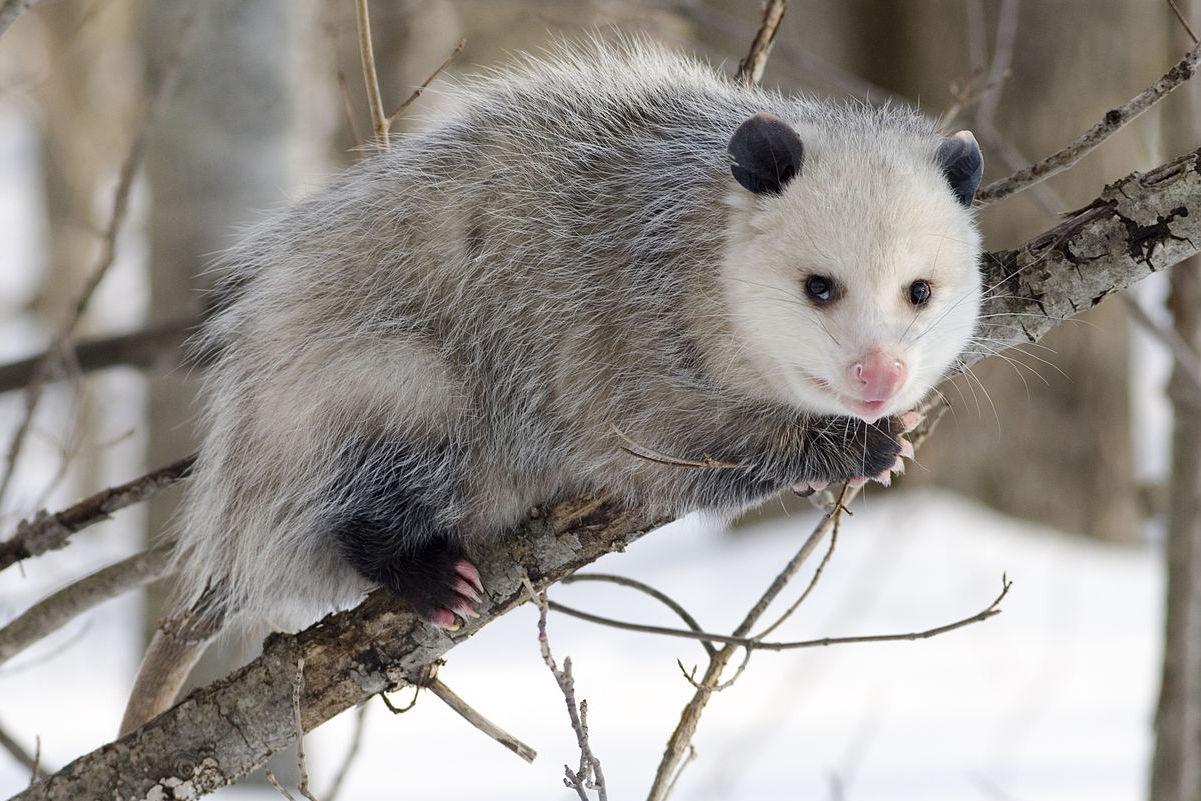Have you ever seen a cartoon of a sleeping opossum hanging upside down by its tail? Well, you may be surprised to learn that 'possums don't actually sleep that way.
Although often depicted in cartoons as hanging from their tails, the muscles in the 'possums' tail are not strong enough to support an adult's weight for more than a moment. Young 'possums are sometimes spotted dangling temporarily by their tails, which may be where the myth got started, but even juveniles don't hang upside down while sleeping. Still, the 'possum's prehensile tail is quite handy. It can curl tightly around branches, grasp and carry objects, and help stabilize the 'possum as it clambers around in trees and bushes.
Another common misconception is that 'possums are related to rats. While they do look like rats with their pointy snouts and scaly, hairless tails, the resemblance is only superficial. 'Possums are actually more closely related to kangaroos than to rats. Like kangaroos, 'possums are marsupials, and the females carry and nurse their young in pouches on their abdomens. The opossum, Didelphis virginiana, is the only marsupial native to North America.
These solitary, nomadic omnivores are also known for their unusual defense mechanism. When threatened, they often enter a comatose‑like state, becoming rigid and unresponsive. They appear to be dead and even release a malodorous substance from their anal glands that makes them smell dead. This behavior is often called "playing 'possum," but the response is an involuntary physiological reaction rather than a conscious act or trick. 'Possums may remain in this state from a few minutes to 4 hours.
Often looked upon with disdain or disgust, this misunderstood marsupial is actually one of North America's most unique and harmless mammals.









